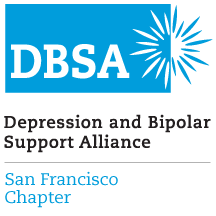RESILIENCE
Resilience may be best described as the ability to recover from setbacks, adapt well to change, and keep going in the face of adversity. It's not a magic wand that erases the pain and challenges that come up throughout our lives but it is a skill worth building to help reduce suffering and enhance well-being.
From Stress to Resilience
Facing stress in our lives is an integral component of being more resilient, says Raphael Rose. In his research for NASA, Raphael finds that accepting and even welcoming stress helps us become more resilient, leading to a more meaningful, joyful, and socially connected life.
Resilience
Science suggests that resilience is not simply something we're born with but is a skill we can develop. How? The following have been defined as essential building blocks that can strengthen our resilience:
1. Connection
Maintaining healthy social connections is a critical part of how we recover from setbacks and manage through hardships. Research shows that connecting to others can serve as a buffer to the impact of stress. We need to make time for the people that matter most; and make it in person when we can. It makes a difference.
2. Energy
Fueling our body and mind allows us to maintain the energy we need to keep going when a lot is being asked of us. To do that we need to: eat healthy (add color to your plate), move often (close those rings on your fitness watch), sleep well (7-9 hours), and rest regularly (take work breaks).
3. Mindset
The way we view setbacks predicts how we recover from them. Seeing opportunities for learning and/or something positive in the face of adversity is key. A growth mindset helps us understand that effort and struggle are normal and part of how we grow and stay creative. It also helps guide us toward gratitude for what we have, which dampens suffering. What is something positive that has come out of a bad situation?
4. Meaning and Purpose
Having purpose in our lives gets us up and keeps us going in the face of hardship. Prioritizing time for the things that bring meaning to our lives (social, spiritual, physical) is especially impactful when we're running low on energy or mood.
5. Mindfulness
The ability be present helps us see things more clearly so we can thoughtfully choose how we respond, versus react, when challenges arise. That clarity also helps us identify what is in our control, buffering our response to stress. And it helps us stay flexible and creative, making us more adaptable to change, which is inevitable. Taking moments out of your day, away from devices, and reflecting can help you be mindful in stressful situations.
